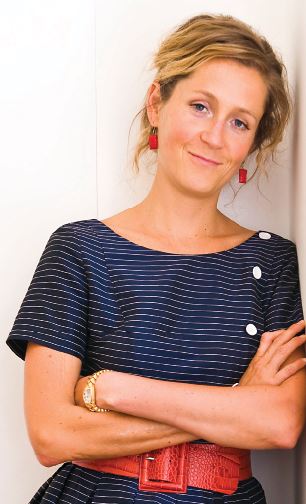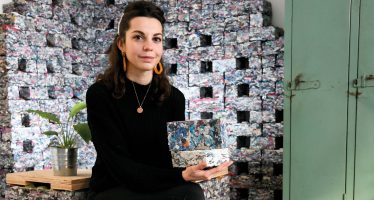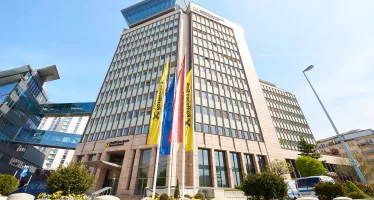Martha Lane-Fox: Dot Everyone to Reclaim the Net for Civil Society
 Seeking succour for the digitally-challenged, Britain’s Martha Lane-Fox – or Baroness Lane-Fox of Soho as she is known around Westminster – is determined to get Britain online – all of it. Appointed digital commissioner by the last Labour government, she was kept on by the present Tory one to talk, and sometimes gently cajole, especially older people to venture onto the Internet.
Seeking succour for the digitally-challenged, Britain’s Martha Lane-Fox – or Baroness Lane-Fox of Soho as she is known around Westminster – is determined to get Britain online – all of it. Appointed digital commissioner by the last Labour government, she was kept on by the present Tory one to talk, and sometimes gently cajole, especially older people to venture onto the Internet.
In Britain, over ten million people are still reluctant to navigate the web. Most are hampered by either misconceptions about the Net or a dearth of knowledge regarding its possibilities: “This precludes them from leveraging the transformative power of the Internet,” says Lady Lane-Fox who emphasises that mastering basic digital-literacy skill is as essential as learning to read and write.
Co-founder of the online travel agency Lastminute.com – acquired in 2005 by Sabre Holdings of Travelocity fame for £577 million – Lady Lane-Fox pocketed a cool £13 million for her share of a company that never produced a penny in profits. In all fairness, the baroness could have stepped out at the height of the dot com bubble when Lastminute.com was floated on the London Stock Exchange. She preferred to stay on instead and managed to guide her company through the worst of the crisis that followed the burst of the bubble in 2000.
From 2009 onwards, Lady Lane-Fox has held a number of official appointments to further the digital cause in Britain. She also chairs the Go ON UK charity dedicated to transforming Britain into the world’s most digitally-skilled nation. Delivering this year’s highly-anticipated Dimbleby Lecture, Lady Lane-Fox proposed the creation of a new entity – provisionally named Dot Everyone – to represent civil society in the debate about the Internet’s future.
Dot Everyone would seek to rebalance the power over the Net, now mainly entrusted to large corporations and purely technical agencies such as the World Wide Web Consortium (W3C) established by British computer scientist Tim Berners-Lee who in 1989 invented the web. The entity Lady Lane-Fox envisions must keep digital citizenry alive – safeguarding individual freedoms, and ensuring equal access to the virtual world.
“It is in within our reach for Britain to leapfrog every nation in the world and become the most digital, most connected, most skilled, most informed on the planet. We need a new national institution that would lead an ambitious charge – to make us the most digital nation on the planet. We’re going too slow, being too incremental. We need to be bolder. A new institution could be the catalyst we need to shape the world we want to live in and Britain’s role in that world.”
Paraphrasing Internet activist Aaron Swartz, who in 2013 committed suicide after suffering legal harassment and intimidation by US prosecutors, Lady Lane-Fox said that it is now “no longer ok not to understand the Internet.” More than just a voice of the online civic society, Dot Everyone is to become an educational institution, guiding and coaxing millions of Britons onto the Internet. As such, Dot Everyone is envisioned as the vehicle of choice with which to tackle the Internet’s three main challenges: education, inequality, and regulation.
Lady Lane-Fox has her work cut out: speaking at a digital conference, she recently expressed doubts that any of her peers in the House of Lords understands the Internet and its importance: “I would argue that a kid mucking around on Facebook doesn’t understand the internet as much as I would argue one of my fellow peers doesn’t understand the internet. Lady Lane-Fox also expressed dismay at the lack of interest displayed by most political parties in issues relating to the Internet and its transformational power.
You may have an interest in also reading…
Clarisse Merlet: Building a Better Future, One FabBRICK at a Time
The fashion industry is known for glitz and glamour — but it’s one of the biggest polluters on the planet.
World Bank: Transforming the Economy to Achieve Zero Net Emissions
To stabilize warming at less than 2 degrees Celsius, as the international community agreed in 2009, the world will have
Raiffeisen Certificates: Investing in Capital Markets — with Protection
No one wants unnecessary risk — least of all Austrians, who traditionally display caution when investing in capital markets… Raiffeisen


















































































